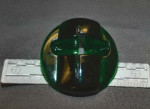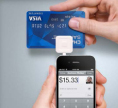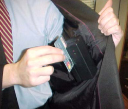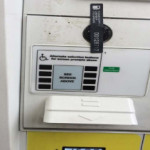NASHVILLE — The recent discovery of credit card skimmers hidden inside gas pumps at a Nashville area convenience store exposes the potential vulnerability of everyday consumers to thieves and scam artists. The Tennessee Depart-ment of Commerce & Insurance’s (TDCI) Division of Consumer Affairs is warning consumers to be on the lookout for skimming devices that are used to steal credit card information.
“People shouldn’t have to worry that their money and personal financial information might be swiped by thieves when they swipe their credit card to make a purchase,” said TDCI Deputy Commissioner Bill Giannini. “Unfortunately, modern technology can leave us exposed to sophisticated scams and frauds. Tennesseans should closely monitor their credit card statements and always report any criminal activity.”
See photos of common skimming devices at bartlett-express.com.
How to avoid getting your card skimmed
- Monitor your credit card closely. Don’t allow a stranger to take your card out of your presence. If a retail cashier asks to swipe your card at a different register, follow the employee to monitor the transaction. The safest way to avoid skimming by restaurant employees is to pay with cash.
- Monitor your credit card receipts and statements. At first, thieves tend to make small fraudulent purchases that are less noticeable. Reviewing your receipts and statements closely and frequently may help you discover fraudulent purchases early on.
- Monitor your credit. To further protect yourself from potential unauthorized charges or identity fraud, you may request that the credit bureaus monitor your accounts for unusual spending patterns and request notification before new credit can be granted in your name. These services come at a price (normally under $100 per year depending on the credit agency).
How to report skimming
- Contact local law enforcement and immediately file a police report once you realize your credit card has been skimmed.
- Contact your banking institution or credit card issuer. Immediately notify your bank or credit card issuer that your credit card information has been stolen.
- Contact the three major credit bureaus (TransUnion, Equifax and Experian) to request a security freeze, which prevents new credit authorizations without your consent. Review your credit report closely. You can request one free credit report from each of the three major credit bureaus from annualcreditreport.com once per year.





